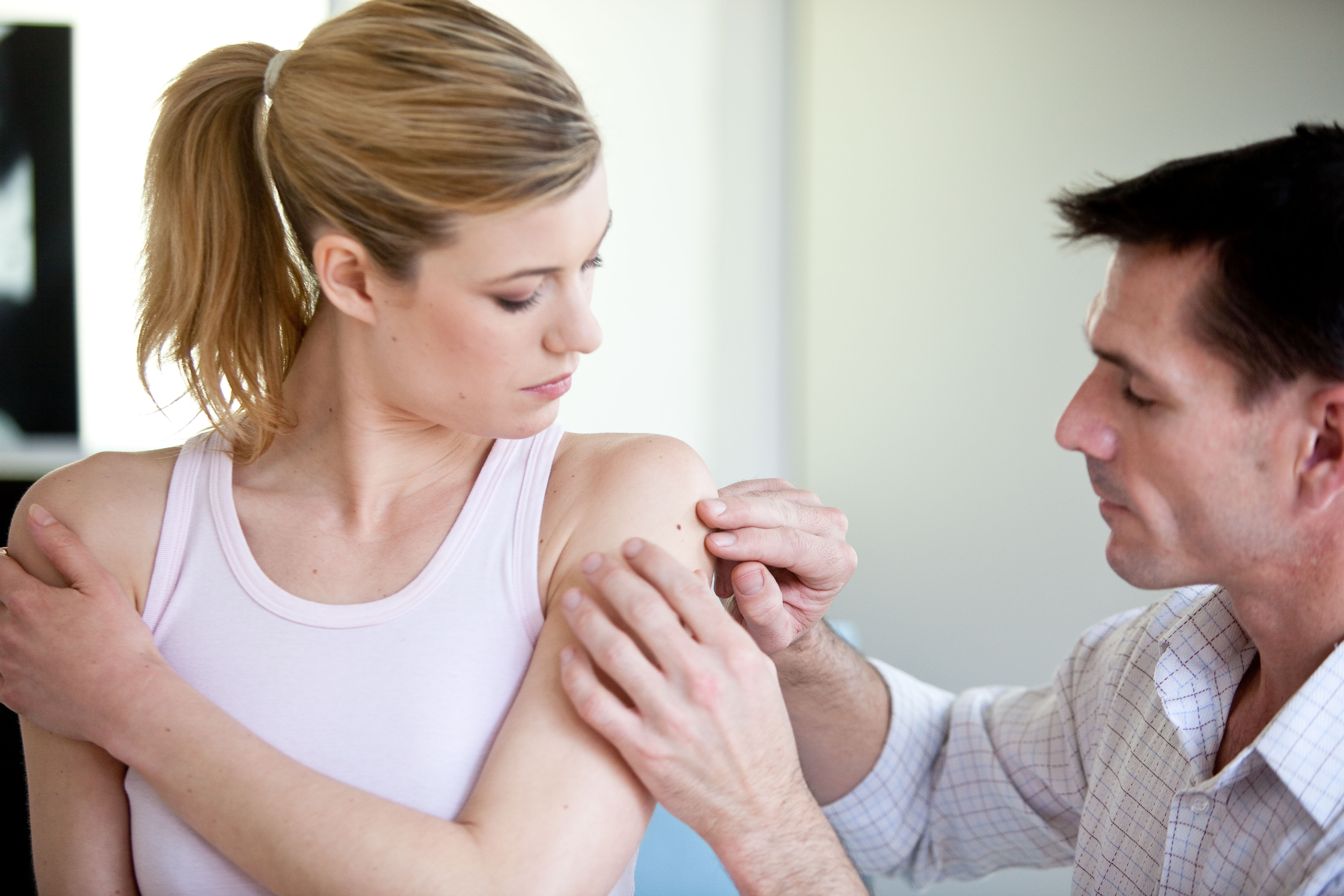One in four Brits have never checked for Britain's biggest cancer risk
More than 2,000 people in the UK die from this every year

More than 2,000 people in the UK die from this every year
Despite a surge in skin cancer related deaths in the UK over the last 10 years, a shocking number of Brits still haven't had themselves checked for what has become Britain's biggest cancer risk.
Whilst we often talk about the need to get yourself checked for breast cancer and ovarian cancer, skin cancer is still not talked about as much as it should be. Especially as more than 2,000 Brits die from skin cancer every year.
In fact, just last year Hugh Jackman revealed he was undergoing treatment for skin cancer.
To help raise awareness, skin checking app Miiskin has teamed up with the British Skin Foundation charity to battle the most common cancer in the UK after discovering that one of four British adults have never had changes in the appearance of their skin checked by a medical professional.
Skin cancer can be broken down into two forms, non-melanoma and melanoma cancer.
Non-melanoma skin cancer
Skin cancer that is non-melanoma cancer often appears on the skin in the form of a lump or discoloured patch and will continue to persist for weeks, months and in some cases years.
Marie Claire Newsletter
Celebrity news, beauty, fashion advice, and fascinating features, delivered straight to your inbox!
These marks on the skin are actually the cancer tumour, and in most cases the lumps are red and firm whereas the flat cancerous patches are usually quite scaly.
Non-melanoma skin cancer is often a result of over-exposure to the sun, which is why it's really important to wear the best sun cream for your skin type when you do go outside. Worryingly, 17% of Brits under the age of 35 believe that they're too young or haven't been exposed to the sun enough to develop this form of cancer.
However, in the UK, more than 100,000 new cases of non-melanoma skin cancer are diagnosed each year. This cancerous disease commonly appears on the face, ears, hands, shoulders, upper chest and back, which is why it's really important to check your skin regularly.
Melanoma skin cancer
Melanoma cancer is a less common but far more dangerous form of skin cancer, as the cancer can spread to other organs in the body. Around 13,500 cases of melanoma skin cancer are diagnosed in the UK each year.
The most common sign of melanoma cancer is a change in the appearance of a mole, or the formation of a new mole on the body. Although these moles can appear anywhere on the body, the most common areas for men are on the back and for women are on the legs.
Despite this, three percent of the 2,0267 Brits surveyed by Miiskin admitted to not getting a mole checked out by a professional despite being concerned about it. One in 50 people also had a persistently itchy or bleeding mole that they hadn't sought medical advice for.
Most melanoma moles have an irregular shape and are often more than one colour, they can also be itchy and bleed. People who have a lot of moles and freckles should frequently get their skin checked by a medical professional to spot these changes in the skin.
The most common causes of skin cancer
Overexposure to the sun and ultraviolet light is the main cause of most skin cancer. Yet scarily, one in 10 Brits still use tanning beds and 13% of those who do often have multiple sessions on a weekly basis. Additionally, only two fifths of Brits use sun protection in hot weather.
Other causes of skin cancer include a family history of it, pale skin that burns easily and medical conditions or medications that suppress the immune system.
Dr Anton Alexandroff, a Consultant Dermatologist and spokesperson for the British Skin Foundation said: 'It's important that people monitor their own skin regularly, to help track any chances which could be worrying.'
'If any changes are noticed, the user can visit their dermatologist for a medical assessment.'
To help track the changes in your skin and moles, the Miiskin app reminds users to regularly check their skin. The app has already had 100,000 global downloads, 20,000 of which are from the UK.
'With cases of skin cancer increasing in the UK, the self-checking message is starting to sink in for some, but not all,' says Jon Friis, the founder and CEO of Miiskin.
'Keeping track of changes to your skin can be a challenge - and many people are now using technology to spot and document changes to their skin. Early detection is important for successful treatment.'
How skin cancer is treated
Premalignant moles and skin cancers (where your cells have mutated in a way that’s considered to be a precursor to cancer) can usually be treated without surgery. Quite often a small biopsy is taken and if it's premalignancy, it can be treated with liquid nitrogen to freeze it off, or some cancer creams that encourage the immune system to attack the precancerous cells.
Melanomas will almost always be treated with surgery, and the earlier you catch them, the better: when they’re less than 1.5mm thick, you’ve got a 96 per cent chance of being disease-free within five years. The thicker it is, the more it correlates with a chance of recurrence or death.
So, the message here is to make sure you regularly check your skin and report any changes to your GP as soon as possible.
-
 I tried Pilates toe taps every day for a week after my instructor recommended it - and I'm blown away
I tried Pilates toe taps every day for a week after my instructor recommended it - and I'm blown awayOne of the OG Pilates moves.
By Katie Sims
-
 Eager to mix up your Pilates sessions this year? A coach shares the 7 best Pilates exercises for arms she does herself
Eager to mix up your Pilates sessions this year? A coach shares the 7 best Pilates exercises for arms she does herselfLevel up arm day from home.
By Anna Bartter
-
 My goal is soft, dewy and plump skin—this is the product that helps me achieve it
My goal is soft, dewy and plump skin—this is the product that helps me achieve itPuts the beauty into beauty sleep
By Matilda Stanley